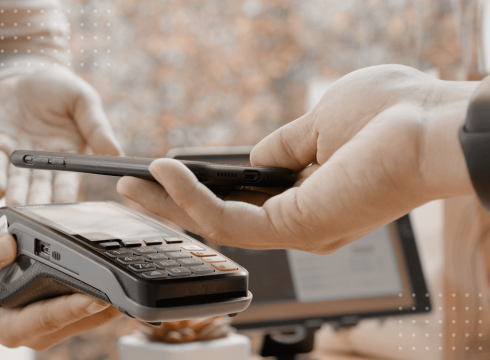Opportunities Awaiting the GSM Sector in Fintech

There are many similarities between banks and GSM operators. They both have global distribution networks, with systems of financial clearing houses that handle the charges between companies within the network. The result is that a person’s bank card can be used globally, so can a smartphone, and the bill can be settled upon returning home.
But while these underlying networks are similar, with the potential to serve absolutely everyone, GSM companies have access to an entire tier of customers that banks do not. A significant percentage of the world’s adult population does not use traditional financial services, but the percentage of adults that don’t use a mobile network is far smaller.
Mobile opportunities for FinTech
GSM operators have a presence in a number of sectors where their services are used. People engage with these services through:
- Wearable technology
- Real-time shopping experiences
- Smartphones and tablets
- IoT devices
FinTech solutions could attract more attention in any of these sectors, and GSM operators need to be aware of the potential.
The underlying strength of mobile consumers is an opportunity for GSM operators to tap into the finance market. Pre-paid mobile customers generally have a strong connection with their mobile operator, regularly topping-up their balance and providing the operator with visibility of their phone usage, data consumption, spending patterns and financial capabilities. All that data links to the individual’s unique phone number, and it is a potential goldmine for the forward-thinking GSM operator.
An economic opportunity
FinTech companies are awakening to the enormous potential of accessing people who don’t engage with traditional banks by using mobile networks. This underbanked population could be brought into the formal financial economy for enormous new revenue streams, which could drive economic growth all over the world. With so many opportunities where mobile technology and FinTech could combine to produce mobile financial solutions, the question of whether retail banking has a sustainable future is a very real one.
Industry players are particularly interested in competing for market share across emerging markets in the world. Many African countries are emerging as a big focal point, with as many as 320 million citizens lacking access to a traditional banking solution. Many banks are pursuing deals with GSM operators to implement FinTech solutions to access these markets, but the GSM operators themselves should see the huge potential of integrating FinTech themselves.
The systems of traditional financial institutions are still unable to connect with large segments of populations across Africa, Asia and South America. For this reason, they need to partner with GSM operators to gain access to the markets they are targeting. Some FinTech providers are developing new credit scoring systems, using alternative sources of data like social media and payment histories with certain platforms to assess their viability for bank accounts. But these are not reliable data streams, and a far more powerful way for these financial institutions to access data about individuals would be to partner with GSM operators.
Banks need the data of mobile networks, but mobile operators don’t need banks. By adopting FinTech solutions into their networks independently from financial institutions, GSM operators have large portions of this emerging market to themselves. It’s agile and can be brought to market quickly – one need only look at the speed at which solutions like Apple Pay were adopted by users, enabling people to make swift purchases through their smart devices.
The power of mobile
The behaviour patterns that are associated with a mobile phone number, even for pre-paid phone users, are vast data pools. These can be harnessed to build financial identities of customers and unlock the market for banking solutions. GSM operators lack the financial market expertise to extract that data, but partnerships with powerful FinTech solutions could enable them to view those customers in a whole new light. FinTech providers are learning that mobile operators have all the information they need, and a wave of new financial offerings from the GSM sector looks inevitable.
Mobile operators have a tremendous advantage. Collectively, their shared network represents the largest distributor of consumer services on the planet. The global mobile network is full of precisely the alternative data that is needed to build individual profiles for potential FinTech customers. It’s the leading source, outside of traditional banking, that has the scale and quality of data to offer new financial services to customers in emerging markets. This could help bring underserved populations into the financial economy and open doors for GSM operators to access new revenue streams by embracing the right FinTech solutions.
Operators have a wealth of knowledge about the spending habits of their customers and can track patterns of behaviour in ways few other companies can. The frequency of top-ups, the amount spent on different transactions, how far they push available credit before adding more and how often they exceed data limits are all telling statistics regarding spending habits. Furthermore, metrics like the way they use their phones are available – do they make a lot of calls or do they mostly send texts? Do they make purchases using their mobile balance or other mobile payments?
This valuable data is all collected by GSM operators, and with the right understanding and analysis, operators could turn it into actionable information. With the implementation of FinTech solutions, these unique insights represent an enormous new business opportunity for mobile operators. There is strength in numbers when it comes to data, and the depth of the insights within mobile networks is extensive.
Operators could partner with FinTech providers to offer brand new financial solutions, or they could work with financial institutions to implement FinTech in partnership for mutual benefit. In either case, there are hundreds of millions of customers waiting to be accessed, and FinTech is opening new windows of opportunity. The evidence is that awareness of this huge potential is gaining momentum, and it won’t be long before it goes from innovative idea to industry standard. GSM operators should start exploring the potential now to avoid lagging behind the rapid digital transformation.
A good place to start is the MFS Platform by tmob, enabling telcos and e-money licensed companies to offer payment and financial services to end-users.




